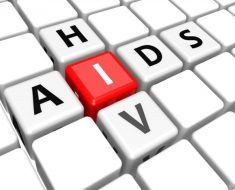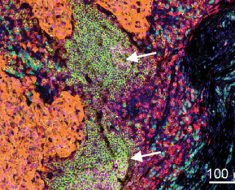Many researchers think high levels of cytokines — immune cell signaling molecules — cause lung damage in people with COVID-19. But new research from the Washington University School of Medicine in St. Louis and St. Jude Children’s Research Hospital in Memphis, Tennessee, suggests otherwise.

This finding could change the way doctors treat severe infections with the new coronavirus. It could also explain why anti-inflammatory medications only work for a small portion of people with COVID-19.
“One of the very first papers published on COVID-19 patients in China reported high levels of cytokines in people in intensive care — what we might call a cytokine storm,” says the study’s co-lead author Dr. Philip Mudd, MD, Ph.D., assistant professor of emergency medicine at Barnes-Jewish Hospital.
“We found that cytokine storm does happen, but it’s relatively rare, even in the COVID-19 patients that go on to have respiratory failure and require a ventilator.”
Stay informed with live updates on the current COVID-19 outbreak and visit our coronavirus hub for more advice on prevention and treatment.
Dr. Mudd says that despite weak evidence, scientists have established the idea that surges in cytokine levels cause respiratory failure in COVID-19. In addition, doctors have started to give anti-inflammatory medications to critically ill COVID-19 patients to prevent cytokine storms.
“That worries me because such treatments are unlikely to help most patients with COVID-19,” he says.
The study appears in the journal Science Advances.
Cytokine storm syndrome and lung failure
Several studies show that lung failure associated with COVID-19 may be due to cytokine storm syndrome (CSS). Cytokines are cell-signaling molecules that help immune cells communicate. They also stimulate immune cells to move towards areas of infection, inflammation, or injury.
When CSS occurs, the body releases excessive amounts of cytokines, triggering an overblown immune response. In SARS-CoV-2 infections, CSS may cause inflammatory cells to accumulate in the lung and cause damage.
This proposed link has led many doctors to give severely ill COVID-19 patients high doses of anti-inflammatory medications — primarily steroids — to block CSS. In addition, limited trials show high steroid doses may reduce the likelihood of death in a small group of critically ill people with COVID-19.
The study
To investigate the immune response to influenza, Dr. Mudd began examining blood samples from consenting influenza patients at Barnes-Jewish Hospital emergency department before the COVID-19 pandemic began.
In late March, Dr. Mudd and study co-senior author Ali Ellebedy also started examining blood samples from consenting COVID-19 patients. Ellebedy is an assistant professor of pathology and immunology at the Washington University School of Medicine, St. Louis, MI.
The researchers and their team examined immune cells and molecules in blood samples from 168 COVID-19 patients, 26 influenza patients, and 16 healthy people.
Samples came from influenza patients in 2019 or 2020 and COVID-19 patients and healthy controls in 2020. The researchers also tracked whether a patient required intensive care or mechanical ventilation, and if they survived.
The researchers found similar levels of inflammatory cells in the blood of patients with COVID-19 and influenza. In total, only seven COVID-19 patients (4%) seemed to experience CSS.
The majority of COVID-19 patients with lung failure also did not have CSS. In fact, they had less inflammation than equally ill influenza patients.
These findings support some previous research that found steroid treatments only benefit a small percentage of severely ill COVID-19 patients.
“It could be that the 4% of people who have cytokine storm are the ones who benefit from steroids in those clinical trials,” Dr. Mudd says. “I think our work helps explain why steroids help some people. But from our data, it doesn’t look like most COVID-19 patients have a deficiency of steroids.”
He adds that giving steroids to someone who already has a lot of steroids in their body may not be safe.
Dr. Mudd says now they need to find a way to detect which COVID-19 patients may experience CSS. This way, doctors can give steroids to those most likely to benefit and least likely to be harmed.
The team tried to find markers of impending CSS using routine lab tests but were unsuccessful. Now they are using more in-depth analyses to learn how to predict who will develop the condition.
Study strengths and limitations
The researchers acknowledged several limitations to their work.
The study focused on the circulating peripheral blood compartment. When the research began, there was no safe protocol for collecting respiratory, or lung, samples in patients with COVID-19.
The researchers also note that they focused on patients’ first blood samples. In more than 75% of cases, the researchers collected these samples at the same time of diagnosis.
Although this limits the possibility that therapeutic interventions were used before sample collection, removing a source of variation, the authors acknowledge that for future studies, it will be important to understand how current treatments impact immune responses.
There are also unknown differences between acute influenza and infections with SARS-CoV-2. One important variation could be how long someone is pre-symptomatic. The time course of the immune response to both infections is also unlikely to be identical.
The study also did not include people with mild or no symptoms of COVID-19, as they were difficult to enroll.
The link between CSS and respiratory failure in COVID-19 is weakening, with other studies finding similar results. That means the true cause of respiratory failure in COVID-19 patients remains unknown.
“In the population we studied, 24% died, but only 4% had a cytokine storm,” says Dr. Mudd. “So what’s causing their lungs to fail? We still don’t know. We’re trying to find out.”
For live updates on the latest developments regarding the novel coronavirus and COVID-19, click here.
Source: Read Full Article





